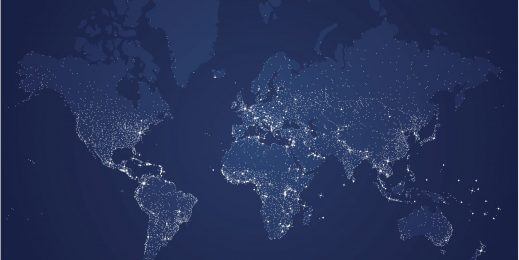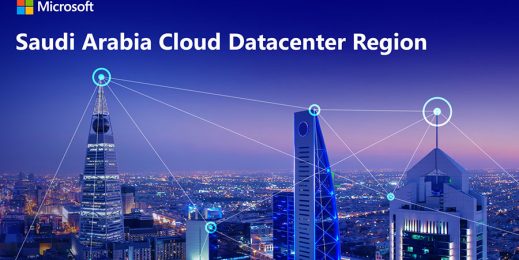
Microsoft opens two more datacentre regions in the Middle East and Africa, strengthening its cloud footprint in the region
For the first time, Microsoft cloud services are now being delivered from datacentres in the Middle East, with the general availability of two new cloud regions in Abu Dhabi and Dubai. They join the recently unveiled cloud regions in Johannesburg and Cape Town, bolstering Microsoft’s investment in digital transformation and economic growth across the Middle East and Africa (MEA).
These new facilities join one of the largest and most secure cloud infrastructures in the world, already serving more than a billion customers and 20 million businesses. Through this global network, organisations can access a range of global cloud services from basic computing, to AI and machine learning.
Starting today, Azure and Office 365 are available from the new datacentres in the Middle East, forming part of a growing portfolio of integrated cloud infrastructure, platform, data, application and collaboration services. Dynamics 365 and Power Platform, offering the next generation of intelligent business applications and tools, are anticipated to be available from the cloud regions in UAE by the end of 2019.
The rise of the intelligent cloud
Across the MEA region, organisations are embracing the potential of cloud to engage their customers more effectively, optimise operations and transform products and services.
A recent Microsoft study found that 70 percent of organisations in the Middle East are planning to move their IT infrastructure to the cloud in the coming year. At the same time, use of the cloud among medium and large organisations in Africa has more than doubled from less than 50 percent in 2013, to near pervasive use by last year.
In an environment where organisations are increasingly wary of cyber-attacks, the security and reliability of cloud services has become a catalyst for continued cloud adoption, as organisations can transition to the cloud while maintaining security and meeting growing compliance needs. Data residency in the UAE will help enable government organisations and enterprises to comply with in-country regulations.
Microsoft is the first cloud service provider in the UAE to achieve the Dubai Electronic Security Centre (DESC) certification for its cloud services, meaning the Dubai government and semi-government entities are able to use the new datacentre regions.
In addition to providing businesses with the broadest compliance, security and privacy standards, Microsoft’s new datacentres will deliver improved performance afforded by their closer geographic location.
Driving economic opportunity

The growth of Microsoft’s cloud footprint is expected to play a strong role in job creation and economic growth across the region. A recent study by the International Data Corporation (IDC) predicts that the cloud and Microsoft ecosystem is set to create more than half a million jobs in the Middle East by 2022.
“An increasing number of studies suggest that the Fourth Industrial Revolution will be a net creator of jobs,” says Samer Abu-Ltaif, President of Microsoft Middle East and Africa. “We are working closely with governments in the region to ensure both businesses and individuals are appropriately skilled to take advantage of these opportunities, and we are aligning a number of these initiatives to our new datacentres in Abu Dhabi and Dubai.”
Microsoft’s growing cloud network will also bring increased opportunities for partner growth. A past IDC study found that the Microsoft partner ecosystem earns more than US$9 for every US$1 of Microsoft revenue, driving a positive impact in the broader economy.
Accelerating digital transformation
With the launch of its South African cloud regions earlier this year, Microsoft became the first global provider to deliver cloud services from datacentres in Africa. In May, Microsoft announced it was bringing its first Global Development Centres to the region with sites in Kenya and Nigeria, helping drive local innovation for global impact.
While these investments are supporting digital transformation in the region, they are underpinned by the company’s substantial commitment to skills development, making sure that governments, businesses and people in the Middle East and Africa have the relevant skills to take advantage of the move to a cloud-first world. Microsoft Cloud Society has trained more than 150,000 IT professionals in the Middle East and Africa and will continue to play an important part in helping businesses to realise the benefits of cloud, digital transformation and artificial intelligence.
“Our newest cloud regions are just one example of our unwavering commitment to economic growth in the region. Microsoft’s 25 years of success in the Middle East and Africa is rooted in our ongoing investment and collaboration with communities and governments, making sure we’re a good economic partner, helping create jobs, generating downstream revenue opportunities and positively impacting society,” concludes Abu-Ltaif.










![A security team analyses key data from a visual dashboard.]](https://news.microsoft.com/wp-content/uploads/prod/sites/133/2023/04/Security-Sprint_TL_Banner-Image-519x260.jpg)



